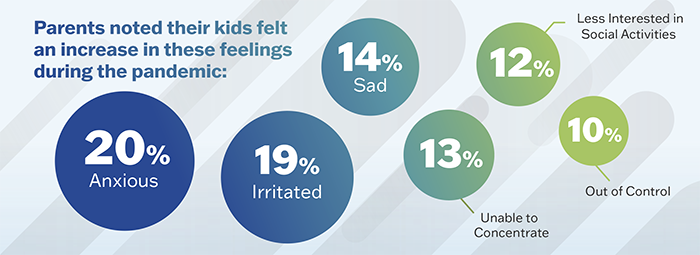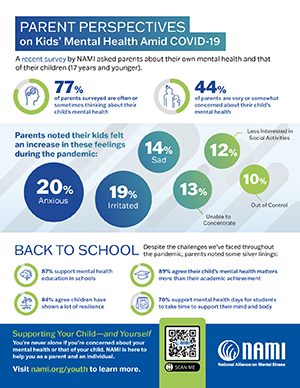Key Findings:
- 87% support mental health education in schools
- 70% support mental health days for students
- 84% say their children showed a lot of resilience during the pandemic
- 89% say their child’s mental health matters more than their academic achievement
- 77% are often or sometimes thinking about their child’s mental health
- 35% are thinking more about their children’s mental health than before the pandemic
- 44% are concerned about their children’s mental health, but only 16% looked for help for them
- Most parents report few changes in their kids’ activities and behaviors since the pandemic began, but those who report changes see more negative behavior. They say their kids:
- spend more time on screens (41%)
- participate less in school activities (37%)
- play or exercise less (25%)
- are getting less sleep (16%)
- Parents who report changes also say their kids are more likely to feel:
- anxious (20%)
- irritated (19%)
- sad (14%)
- unable to concentrate (13%)
- less interested in social activities (12%)
- out of control (10%)
This poll was conducted by Ipsos on behalf of NAMI between Nov. 9–17, 2021, using the KnowledgePanel®. It is based on a representative sample of 1,010 U.S. adults (ages 18 and over), who are parents to children 0–17 years old. The margin of sampling error is plus or minus 3.5 percentage points at the 95% confidence level.




